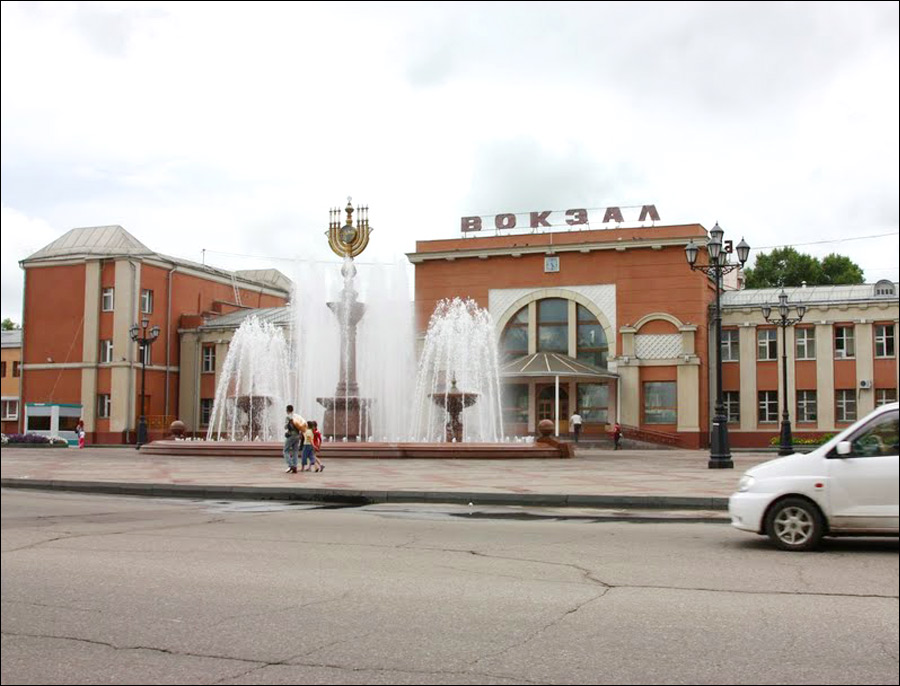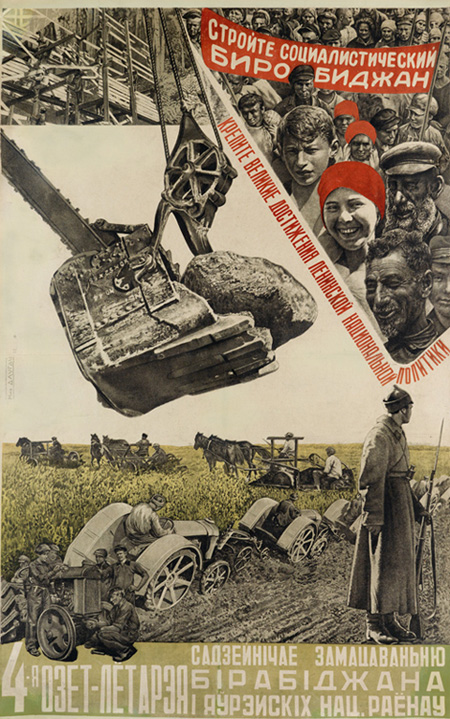Of all the stops of the famous Trans-Siberian railway, there are few as little-known as Birobidzhan – the only officially Yiddish-speaking republic that has ever existed. Located in Siberia near the Russia-China border, Birobidzhan is the center of Russia’s Jewish Autonomous Oblast. In a country as vast as Russia, few people realize that it has its own province dedicated to those who follow the Jewish faith.
The Birobidzhan Experiment

Designed by a Swiss architect and established in 1931, Russian Jews began to be resettled into the region through the Soviet organizations KOMZET and OZET. Before the formation of Israel, the Soviet’s used the slogan “To the Jewish Homeland!” to encourage Jewish workers to move to Birobidzhan, and it worked. The Russian Jews were joined by adventurous Jewish emigrés from Poland, Romania, Lithuania, Germany and even North and South America. Many of the new arrivals were communists who believed that the Birobidzhan Experiment was the only sensible solution to the Jewish National Question at the time, and Soviet Jews were happily paying for their tickets to Birobidzhan – albeit one way. At its peak in the late 1940s, the Jewish inhabitants in the region peaked at around 50,000, around a quarter of the entire population of the province.
The Soviets began to dream of moving all world Jews to the Soviet Union to pursue a socialist lifestyle. However, the Birobidzhan dream soon began to sour. The region lacked any Jewish cultural connections for the new settlers, and the diverse population had various aims and desires, with some settlers determined to be modern Russian citizens and some disillusioned by modern culture and determined to work the land and promote socialist ideals. This left those actually interested in establishing a cultural homeland outnumbered. Of course, the Soviets had an ulterior motive when choosing the territory of Birobidzhan – placing a Jewish population there provided people to act as a buffer against any ideas of expansion from nearby China and Japan. The region was also rich in fish, timber, iron, and gold, and the Soviets needed people to exploit this. Many of the Soviet Jews sent to Birobidzhan were strategically plucked from their native countries of Ukraine and Belarus; their minority status made them unwelcome by the larger populations and their removal placated the wider Belarussian and Ukrainian populace. The Soviets were certainly killing three birds with one stone there.
The Experiment Goes Wrong
It soon became clear that Jews weren’t the only settlers on the land of Birobidzhan; the Soviets weren’t generous enough to fully hand over a region to one ethnic group, and diluting populations – often with catastrophic results further down the line – was a common tactic. As the Jewish settlers began to arrive in Birobidzhan, they had to compete with around 27,000 people already living there, including hard-bitten Cossacks, ethnic Koreans, and expelled Ukrainians. It soon became obvious that settlement here was a bad idea and not practical; the lack of infrastructure and adverse weather conditions made life very grim. Many of the international Jewish settlers decided to leave sharpish.
The Purge

Despite the recent horrors of WW2, Stalin began a vicious anti-Semitic campaign. In the late 1940s he declared war on ‘’rootless cosmopolitans’’ which was a euphemism for ‘Jews’. Jews stopped being able to get jobs, were denied access to education, and were being purged all over the country. The cultural elite of Birobidzhan was targeted, accused of both nationalism and cosmopolitanism. Many people were shot or arrested and sent to gulags for 10 years. Nearly all the Yiddish institutions of Birobidzhan were liquidated.
David Bergelson, a Yiddish writer born in Ukraine, played a large part in promoting Birobidzhan despite not living there himself. He wrote articles in Yiddish newspapers around the world, promoting it as an escape from anti-Semitism. He encouraged thousands to relocate and take part in the project. On his 68th birthday in 1952, Bergelson was put against a wall and shot during Stalin’s campaign against the Jews.
Birobidzhan Today
When the USSR collapsed and borders opened, the situation in Birobidzhan became dire. Cheap goods from across the border in China flooded the market and damaged the local economy. With the newly opened borders, many Jews saw a way out from the misery: Israel. It’s estimated up to 20,000 Jews left during the period and Birobidzhan is still suffering from the effects. Despite the plummeting Jewish population, local authorities are trying to cultivate the memory of Jewish customs and history among the residents and even hope to attract new Jewish migrants.
Young Pioneer Tours often arrange private tours of Birobidzhan; contact us today for a quote!





